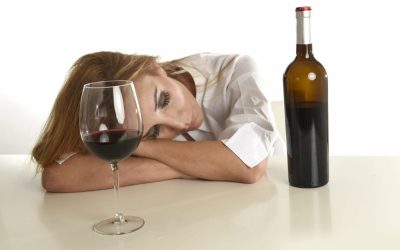Overview of dehydration: What to know, drink types, and tips
Participants who consumed over 500 milligrams (mg) of caffeine daily showed disruptions in fluid balance from the diuretic effects of coffee. The body may tolerate a moderate intake of beer without experiencing dehydration. However, how thirsty you feel may not be a reliable indicator of your hydration needs.
- Participants who consumed over 500 milligrams (mg) of caffeine daily showed disruptions in fluid balance from the diuretic effects of coffee.
- Additionally, moderate wine consumption may help protect against excess weight gain (2, 3).
- To understand how wine dehydrates you, we have to break down the dehydrating effects of alcohol overall.
- As reported, the different hydroxybenzoic acids may occur mainly in their free forms [24].
A small amount of caffeine may not be an issue for most people, though increasing caffeinated beverages may contribute to overall caffeine intake. While drinking extra liquids may generally lead to more frequent urination, a diuretic does red wine dehydrate you liquid such as alcohol will encourage the body to expel even more liquid. If you become dehydrated while pregnant, you can face serious health problems such as too little amniotic fluid, premature labor, and a lack of breast milk.
How to enjoy red wine while losing weight
If you or your child is ill, it’s important to replace lost fluids with water or other beverages like electrolyte drinks. Consuming foods that are high in fluids, such as soups and fruits, can also help prevent dehydration. Dehydration can negatively affect many aspects of health and even be life threatening in severe cases, so it’s important to know the potential signs and symptoms of dehydration in both adults and kids. This makes sense when you consider the diuretic effect of alcohol on your body and its vasopressin production. For example, an average bottle or glass of beer has an alcohol content concentration of three to seven percent. On the other hand, wine is usually closer to around 11 to 14 percent alcohol content per glass.
But that doesn’t mean you shouldn’t enjoy an adult beverage or two from time to time. Here’s what you need to know about how alcohol dehydrates the body and how to drink responsibly. Condensed tannins (or proanthocyanidins) are oligomer flavonoids that contribute to astringency in wine.
Alcohol Consumption and Dehydration
“Drinking one beer over the course of a dinner will not increase your blood alcohol levels as much as if you drank four beers in the same time frame,” says Rumsey. Hydration needs vary depending on a number of factors, including your activity levels, age, and body weight. Drinking plenty of fluids on a daily basis is the best way to prevent dehydration. You can usually manage your mild dehydration by increasing your fluid intake. However, it’s important to note that severe dehydration can be life threatening and should be treated by a healthcare professional. It seems simple, but water truly is the best beverage when it comes to fast rehydration.
- Although the kidneys remove waste products, most of the water loss is due to the effect of vasopressin.
- Five common symptoms of dehydration include tiredness, dry skin and lips, thirst, dark pee, and not peeing as often.
- Hydrated skin will rapidly return to its normal position, while dehydrated skin will remain in a “tented” position and take much longer to bounce back (9).
- If you are wearing multiple layers or in a warm environment, you could induce a light sweat if you drink multiple glasses of wine in a row.
- The alcohol content of beer can vary widely but typically ranges from 2–8% alcohol by volume (ABV).
All of these are common symptoms of dehydration, which is why many people believe that wine dehydrates you after you drink it. Sugary drinks don’t have the same problems, unless you have difficulty regulating your blood sugar. “For some folks with medical conditions such as diabetes, they urinate a lot already based on blood sugar level,” Mieses Malchuk says. “Therefore drinking a sugary alcoholic beverage can make it worse and cause dehydration.”
Dark-colored urine and low urine output
It’s very easy for your body to process and for your intestines to absorb. If you drink a glass of water for each glass of wine you down, you may never feel the effects of dehydration at all (and you’ll still get a slight, though pleasant, buzz). But because wine has a higher alcohol content than most types of beer, it’s more dehydrating than the latter. In addition, beer usually has more water content as beer is typically served in more ounces per glass or bottle than wine, which may be as little as five ounces or so per glass. Alcoholic beverages like wine have their pleasures, but drinking too much wine or other alcohol in short order can leave you feeling dizzy, tired, and even with a headache.

Electrolytes are found in common foods, including salt, bananas, and watermelon, and can also be consumed from electrolyte-specific drinks or mixes. “Essentially, when you’re dehydrated, you’ll feel alcohol’s effects sooner and for longer,” Pfau says. A 2016 study published in the American Journal of Clinical Nutrition assigned a beverage hydration index (BHI) to various drinks that would determine hydration status after ingestion. If you’ve ever heard the term, “breaking the seal,” you know that alcohol has a diuretic effect on the body, meaning it causes you to urinate more frequently. The process is called diuresis, which on its own causes dehydration [1]. Ramadori et al. [121] conducted a study on diet-induced obese and diabetic mice to evaluate the impact of approximately 79.2 ng/day intracerebroventricular infusion of resveratrol on glucose metabolism.

